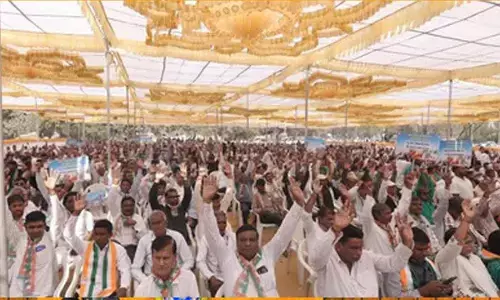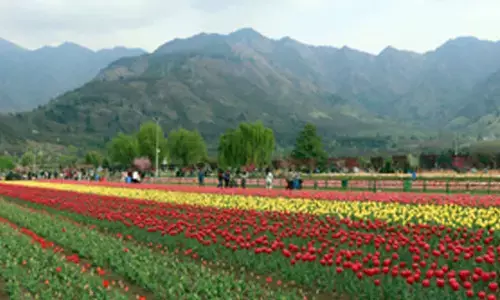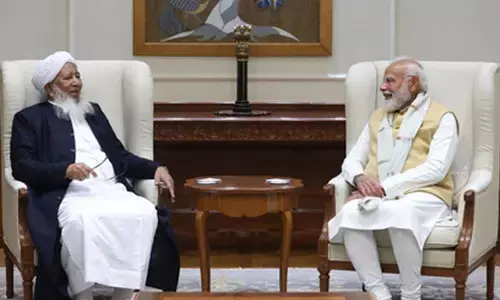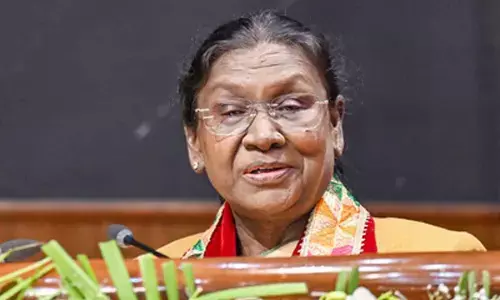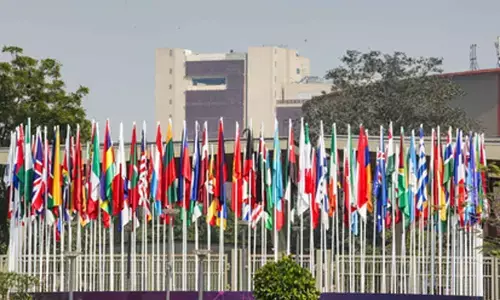Time ripe for third force in AP politics
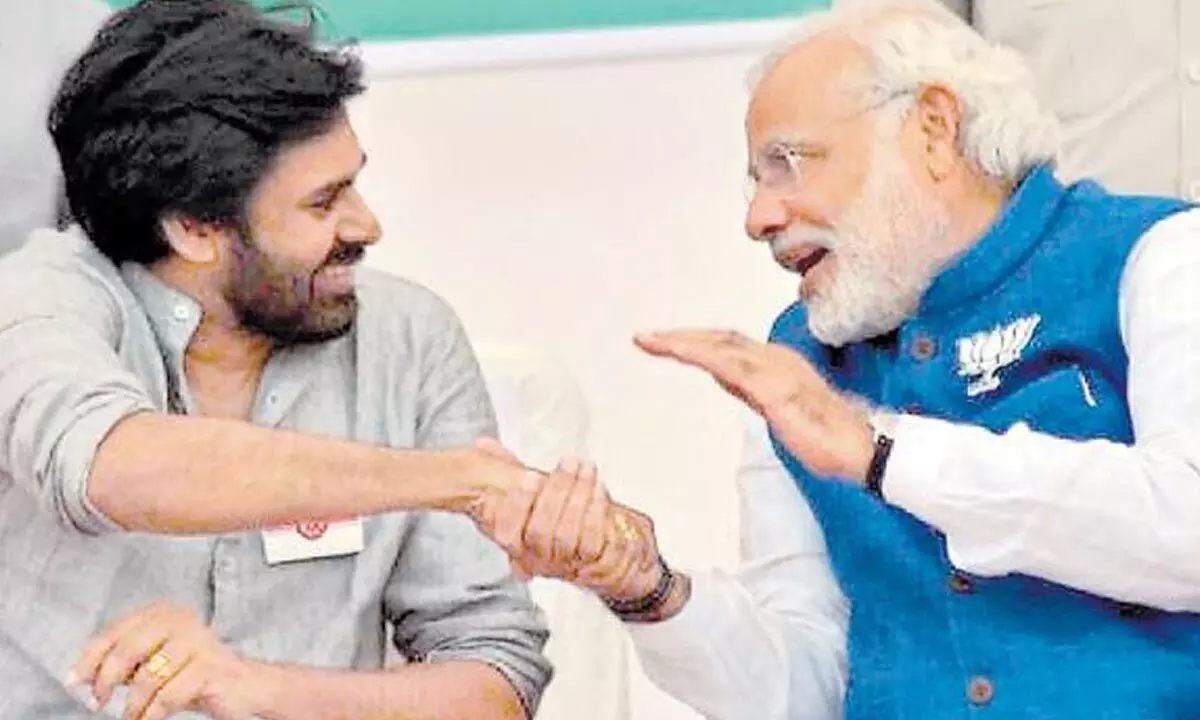
Pawan Kalyan and Prime Minister Narendra Modi
During his recent visit to Visakhapatnam, Prime Minister Narendra Modi requested Pawan Kalyan, the actor-turned politician of Andhra Pradesh, to meet him.
During his recent visit to Visakhapatnam, Prime Minister Narendra Modi requested Pawan Kalyan, the actor-turned politician of Andhra Pradesh, to meet him. Pawan Kalyan went by a special flight from Hyderabad and was closeted with the PM for more than an hour and when he met the press afterwards made a cryptic remark that good days were ahead for Andhra Pradesh. Political pandits are analysing and interpreting the significance of this meeting and the meaning of the cryptic remarks of Pawan Kalyan. Does it mean the emergence of an effective third front representing the politically marginalised classes of the state?
Andhra Pradesh state formed by the merger of Andhra state coming out of the Madras state and Telangana portion coming out of Hyderabad state in 1956 had a stable long leadership under the Congress. As per the formula adopted by Jawaharlal Nehru, where he shared the local political power to the dominant community who left him free to operate at the national level the political leadership in Andhra Pradesh continued for a long time with Reddy community both Neelam Sanjeeva Reddy and Kasu Brahmananda Reddy having long stints as Chief Ministers in between a short tenure for the first dalit chief minister of the country, Damodaram Sanjivaiah. An attempt was made to disturb this well-entrenched political structure by Mrs Gandhi once she became powerful at the centre by bringing in PV Narasimha Rao as the Chief Minister and giving a major representation to the backward classes in the political power structure. A genuine attempt was made to implement land reforms and in fact in those days it was progressing effectively compared to other states in Andhra Pradesh.
But the Andhra agitation of 1972 changed the whole scenario with the resignation of the then Chief Minister of Andhra Pradesh PV Narasimha Rao. What followed next and emergence of Jalagam Vengal Rao as the CM gave rise to a different power structure where the other landed community of the state, Kammas, started having a greater share in the political power. Though Vengal Rao was a Velama by caste, all his financers and political supporters were drawn from the Kamma caste, tilting the balance of power in favour of Kammas . After a reasonably long stint, Vengal Rao had to leave as he fell foul with Mrs Gandhi and Indira Congress swept the polls in Andhra Pradesh.
A sweeping electoral success for Congress led to a period of unstable state governments of weak Chief Ministers fostered on the state by Central leadership. Just then the popular Telugu movie hero who turned 60 N T Rama Rao started a new party Telugu Desam and swept to power in 1981 within 6 months of forming the new party riding high on the anti-establishment wave emphasising the self-respect of Andhras. From then on, political power was alternating between the Telugu Desam and the Congress broadly representing the interests of the two dominant communities of the state – the Reddys and the Kammas.
There is a strong feeling among the other politically marginalised communities for a third alternative which can represent their interests. More so, among the Kapu community who are numerically large but never had a Chief Minister from their community and were at the fringes of political power structure for a long time. In 2009, an attempt was made to build this third alternative under the leadership of another popular hero Chiranjeevi, who is also incidentally the brother of Pawan Kalyan, by floating a political party Praja Rajyam. There was no strong ideological base and commitment on the part of the leadership and it fizzled away. Incidentally, both Chiranjeevi and Pawan Kalyan belong to the Kapu community.
Can the present combine of BJP-Jana Sena fill that gap and provide a much-needed 3rd alternative to the state? Circumstances are ripe for such a third alternative in the state. The Jagan Mohan Reddy government has become unpopular and there is a strong anti-establishment wave. For a variety of reasons, Telugu Desam is not able to pick up. There is a political vacuum in the state.
There are a number of hurdles BJP janasena alliance has to cross to be successful. Most important one is the media which is fully controlled by YSRCP and Telugu Desam. The role media played in discrediting Praja Rajyam party of Chiranjeevi in 2009 is significant.
The second set of huddle this combine will have to cross is a batch of self-proclaimed intellectuals with a strong bias towards these two dominant parties who will try to bring in some imaginary injustice done to Andhra Pradesh post bifurcation and try to present Pawan Kalyan as an unreliable leader. BJP Jana Sena combination should be prepared to counter them and take their point of view to the public.
Jana Sena-BJP from now onwards should present a united face with a strong common agenda and common programmes. Only way they can be relevant is convincing the people that this combination can provide a real good alternative to YSRCP. (Writer is a BJP leader)


